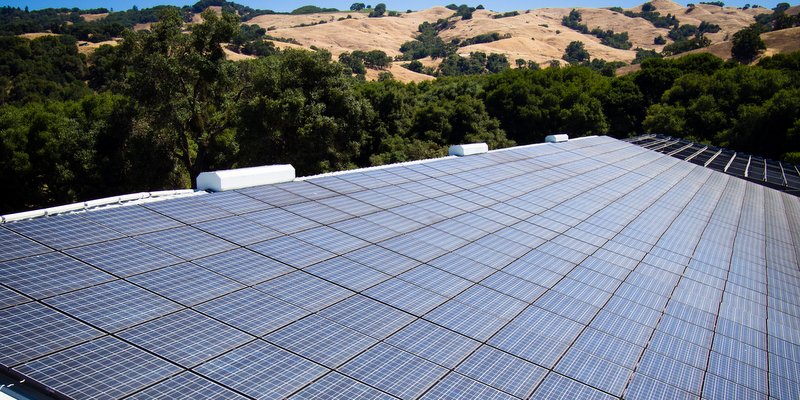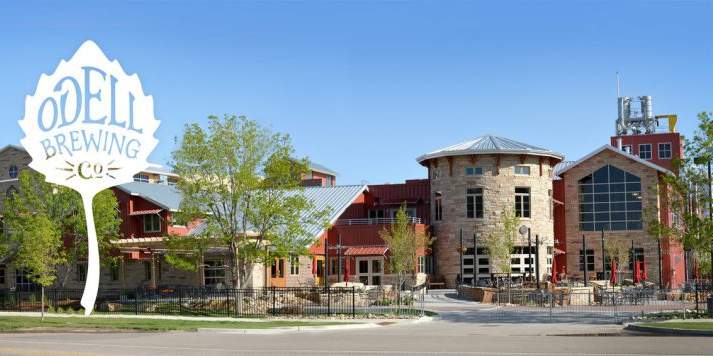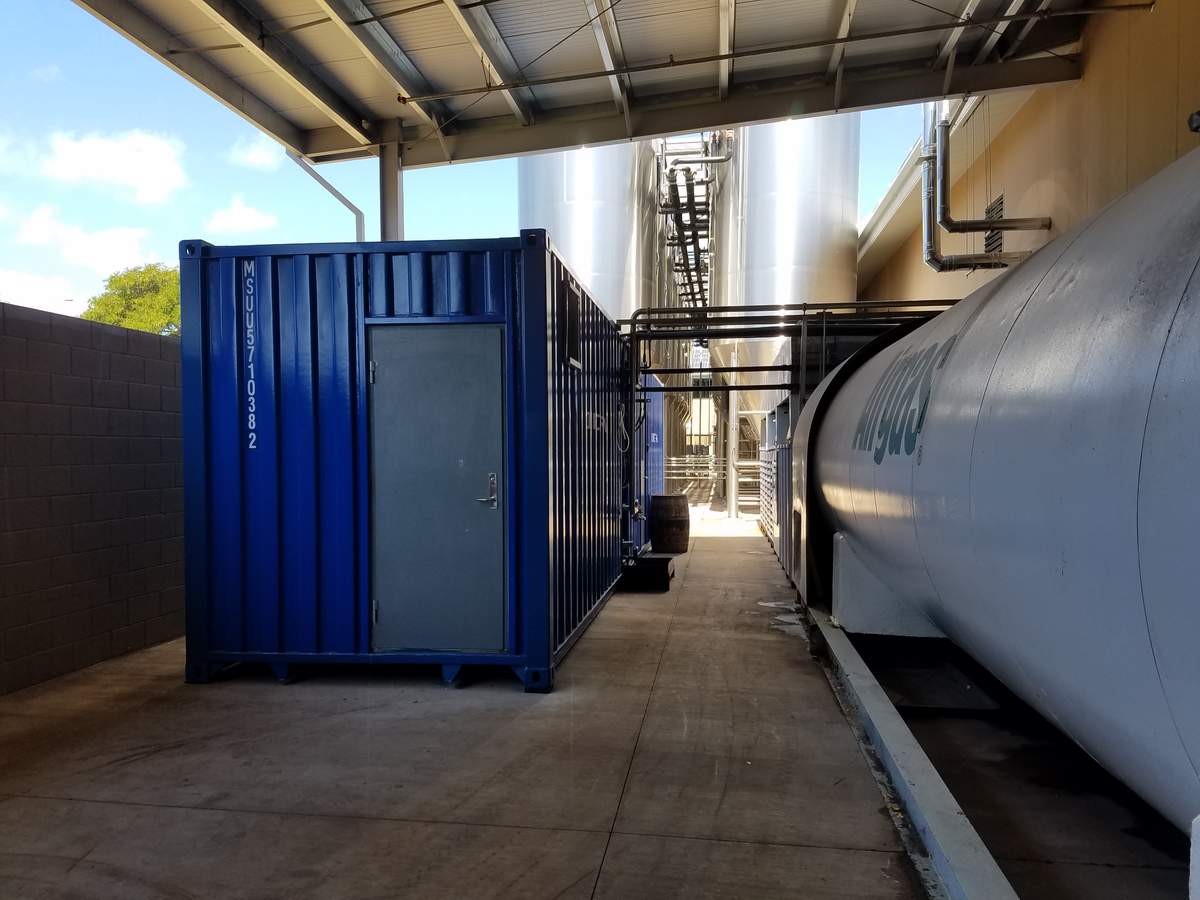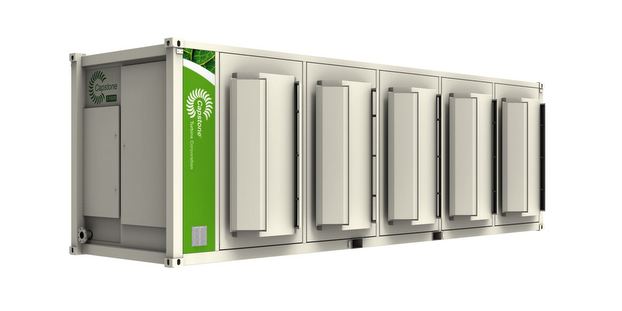
Anderson Valley Brewing Co. is in the upper echelon of environmentally conscious breweries. The Boonville, Calif.-based craft brewery — proudly staking its claim as the world’s first solar-powered brewery — has invested in a ton of renewable energy and resource-efficiency initiatives over the last three decades.
But to save this planet, we’ll need much more than Anderson Valley! And they know it. In celebration of Earth Day last week, AVBC put the focus on that communal effort and called out a few of the “thoughtful and innovative solutions” of its fellow breweries that have inspired them over the years. Maybe this roundup will help do the same for others.

Energy Use | Highland Brewing Co., Asheville N.C. | Electricity use is a significant factor in the overall environmental impact of the brewing process. Breweries that use renewable energy sources like solar panels to fuel production not only reduce their environmental impact but are also more energy independent. Anderson Valley, as mentioned, is the World’s First Solar Powered Brewery, but is by no means alone these days. A great example of another solar powered brewery with a strong sustainability drive is Highland Brewing. Located in a bucolic park setting, on sunny days Highland’s solar array can actually produce more energy than they use.

Gas Emissions | Odell Brewing Co., Fort Collins, Colo.| Breweries use a lot of CO2. You may recall our award-winning CO2 Shortage Series covering the topic. For a long time, CO2 has been the industry’s gas of choice since it’s needed anyway for carbonation. As it turns out, most of a brewery’s CO2 usage – up to 80% – can be replaced with inert gasses like nitrogen – which is a non-greenhouse gas and is the most plentiful element in Earth’s atmosphere.
Anderson Valley has a nitrogen generator that allows the brewery to not only reduce the amount of CO2 released into the atmosphere but also cut down dramatically on CO2 delivery trucking. Nitrogen generators aren’t the only tactic, though. Breweries produce a lot of CO2 through fermentation and there are a number of systems now available to capture that CO2 for on-site reuse. Odell Brewing (also a solar powered brewery) installed a CO2 recapturing system in their brewery in Fort Collins, Colo., that they calculate will prevent 1.4 million pounds of CO2 from entering the atmosphere per year.
Water Use | Sierra Nevada Brewing Co., Chico, Calif. | Water is the single most important ingredient in beer, and breweries need a lot of it for everything from washing down tanks and packaging lines to drinking and managing their goat herd. Anderson Valley Brewing Company has the unusual benefit of being able to run a completely self-contained water system — 100% of the brewery’s water is sourced, sustainably treated, and then returned to the property.
Other breweries are also running exceptional water systems and can include things like methane recapture as part of the treatment process that can be reused on site as fuel. Sierra Nevada Brewing has been doing amazing things with sustainability in general and has programs that touch on pretty much everything (also a solar powered brewery – managing a full 2.5 MW of solar power production) but some of the most interesting are their water conservation and treatment programs at both the CA and NC breweries.

Packaging | Maui Brewing Co., Kihei, HI | Beer is heavy and transporting beer from the brewery to far away retailers by truck can greatly increase the carbon footprint. Packaging plays a big part – using aluminum cans instead of glass can greatly reduce the weight in transportation. Cans are lighter, more portable, and endlessly recyclable. Using cans instead of glass reduces trucking by almost 60% and using cardboard wraps instead of plastic increases the overall recyclability of the package and obviously reduces plastic use.
Maui Brewing is an exceptional example of a sustainability focused brewery and in addition to its super impressive solar power system and CO2 capture technology, also recently ditched the plastic rings for cardboard wraps for all their products.
Waste | North Coast Brewing Co., Fort Bragg, Calif. | Responsible and sustainable brewing practices by definition require a robust and meaningful plan to manage the waste stream generated from making beer. Thankfully the craft beer community has been actively addressing this problem since its inception.
“Pretty much every brewery we know has an active recycling program in place and a means of keeping the spent grains and yeast from hitting a landfill,” the AVBC team notes. Anderson Valley Brewing Company’s brewing waste is repurposed to feed local cattle, and most breweries find a similar way to supplement livestock feed or even make dog biscuits out of it.
Some breweries take all this a step further, and a leader on this front is North Coast Brewing (also a solar powered brewery) who, is a certified B-Corp that continuously achieves Platinum certifications for Zero-Waste. North Coast has a super-cool partnership with a local intergenerational family farm, Fortunate Farms, who uses its spent grains for compost to grow organic heirloom vegetables and flowers.






Leave a Reply
You must be logged in to post a comment.